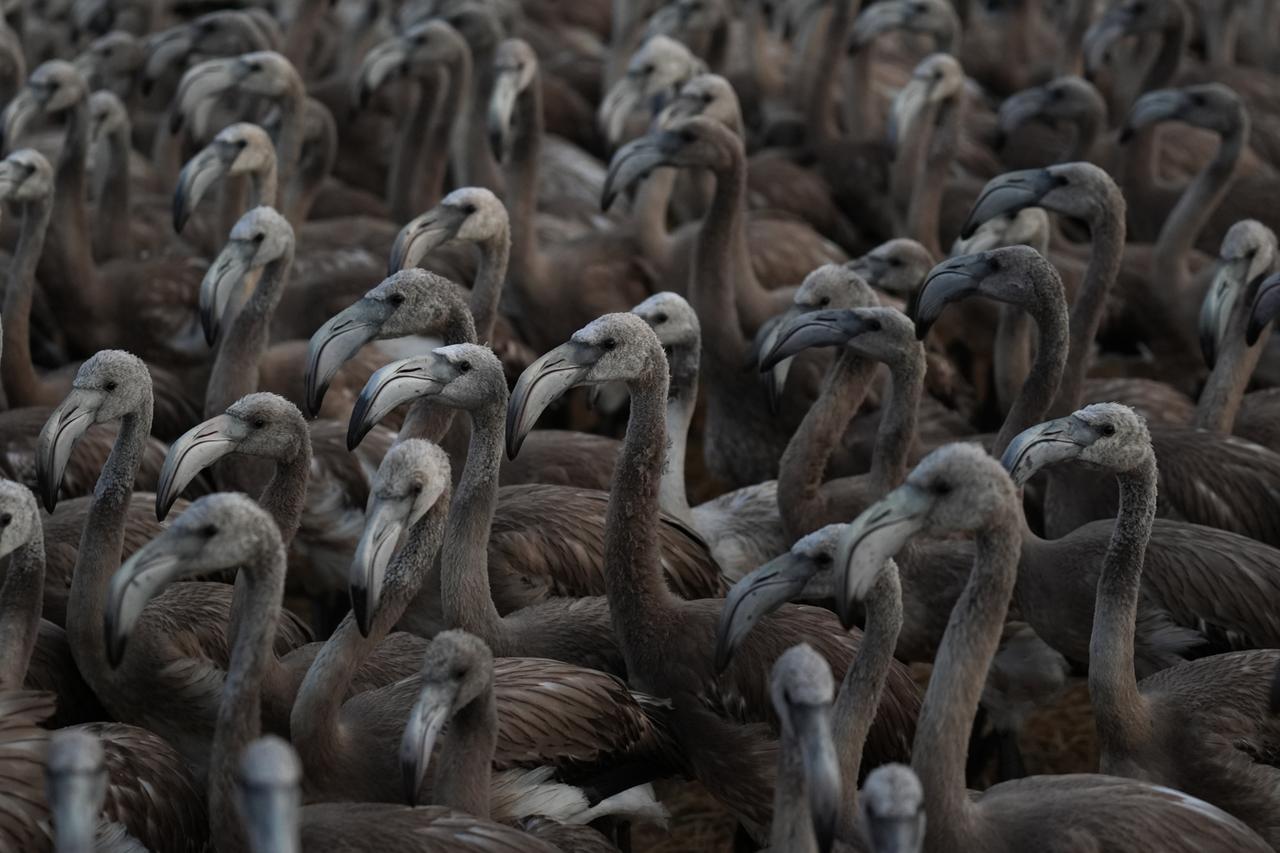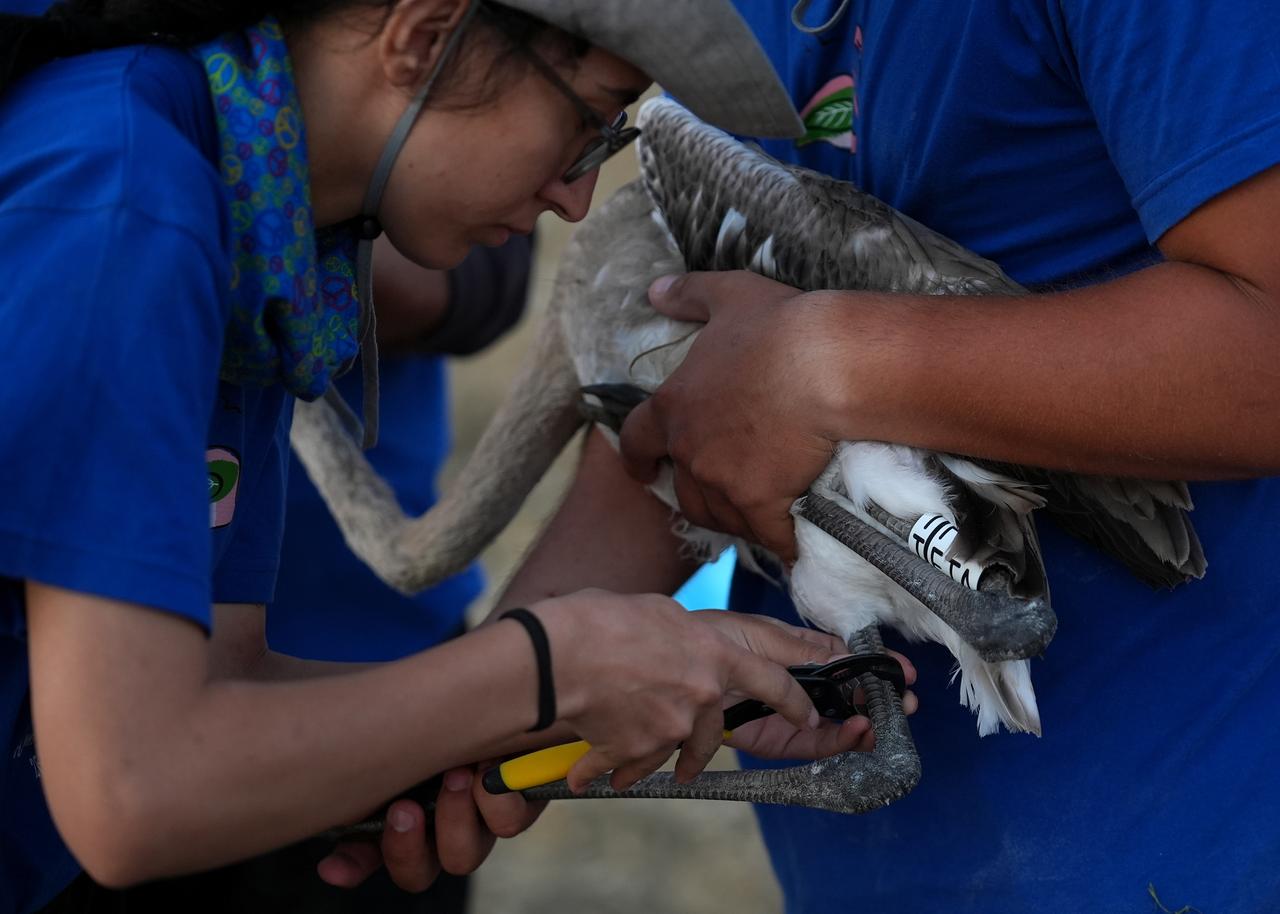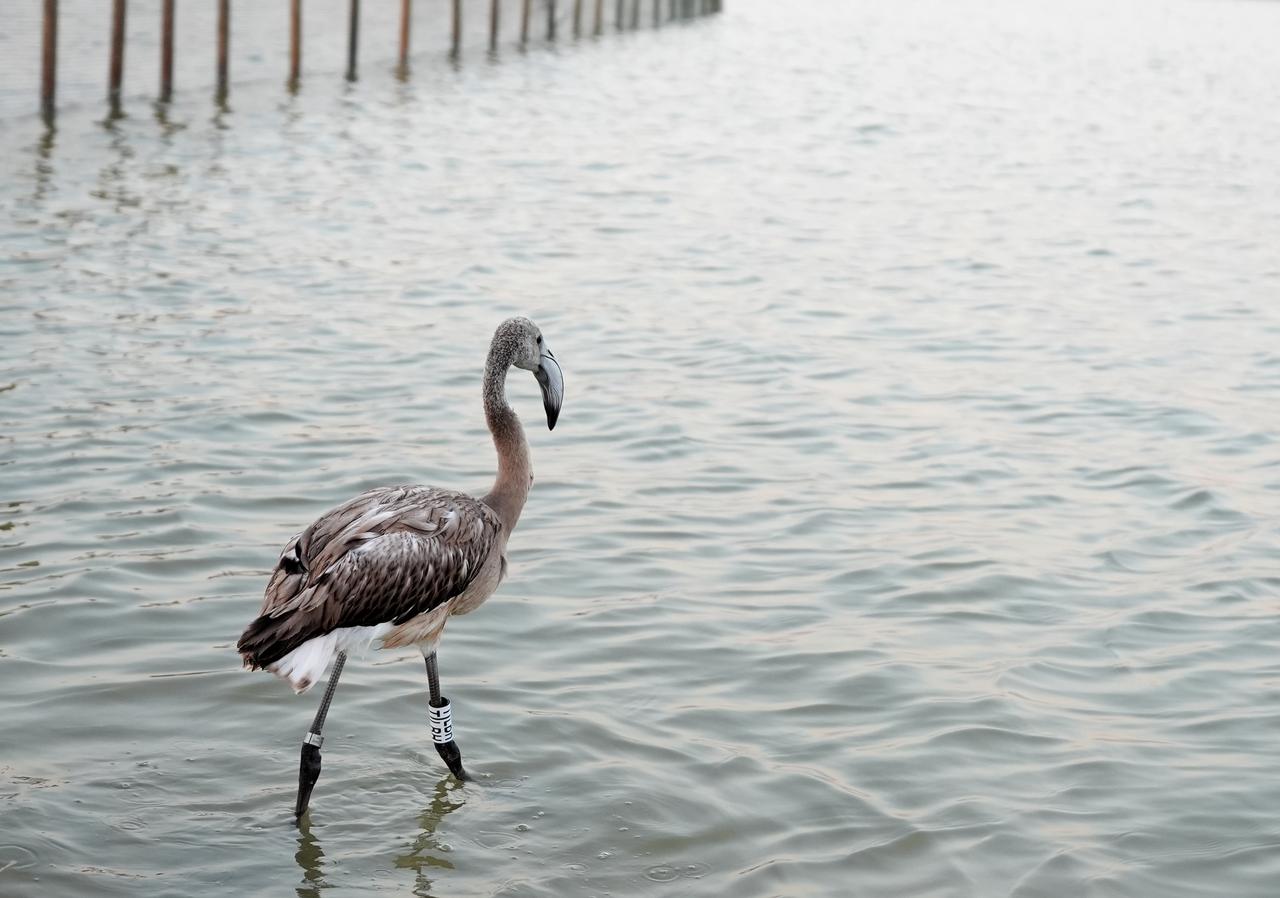
In the Gediz Delta, one of Türkiye’s most important wetlands, around 650 newly hatched flamingos were tagged this year to help scientists monitor their migration routes and life cycles.
The delta, one of only two flamingo breeding sites in the country, is home to a 6.5-decare artificial nesting island built in 2012. Each summer, thousands of chicks hatch here. Born with dark grey and black feathers, the young birds feed on brine shrimp (Artemia salina), a key link in the local food chain.
To safeguard the birds during the nesting season, the Izmir Directorate of Nature Conservation and National Parks enforces special security measures in the area, restricting human interference.
This year’s tagging project was led by the General Directorate of Nature Conservation and National Parks, in collaboration with Ege University, Ankara University, and the United Nations Food and Agriculture Organization (FAO).

Plastic rings were placed on the chicks’ right legs and metal rings on their left legs, allowing researchers to identify them from a distance using binoculars or telescopes.
Associate Professor Ortac Onmus from Ege University explained that the operation began before dawn.
“About 16,000 breeding pairs nest here. This year, with the help of 120 volunteers, we tagged more than 600 chicks. Volunteers received training beforehand, then entered the water at 4 a.m. to guide the young birds into a designated enclosure,” he said to AA.

Onmus noted that flamingos help sustain fish populations by dispersing brine shrimp eggs through their digestive system, saying, “Protecting flamingos means protecting Türkiye’s fisheries.”
The tagging program, ongoing for two decades, has revealed that flamingos from Türkiye migrate to France, Italy, and Spain—and that birds from those countries also arrive in the delta. Gediz Delta is now recognized as the largest flamingo breeding colony in the Mediterranean basin.